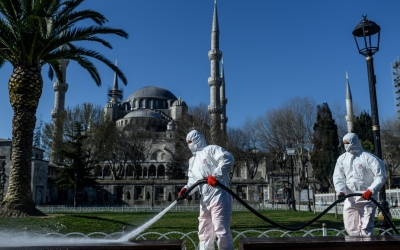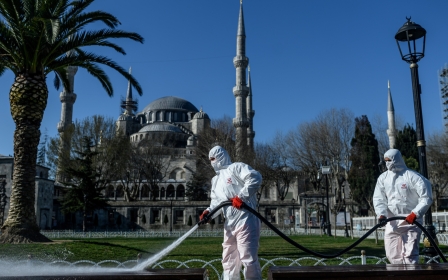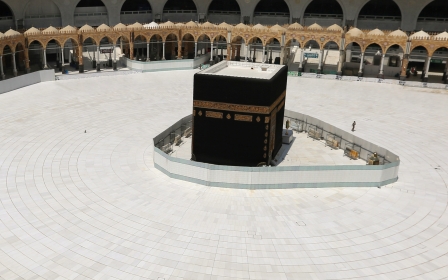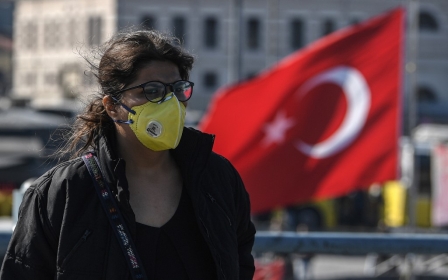Coronavirus: Turkey cancels international flights, bans travel between big cities
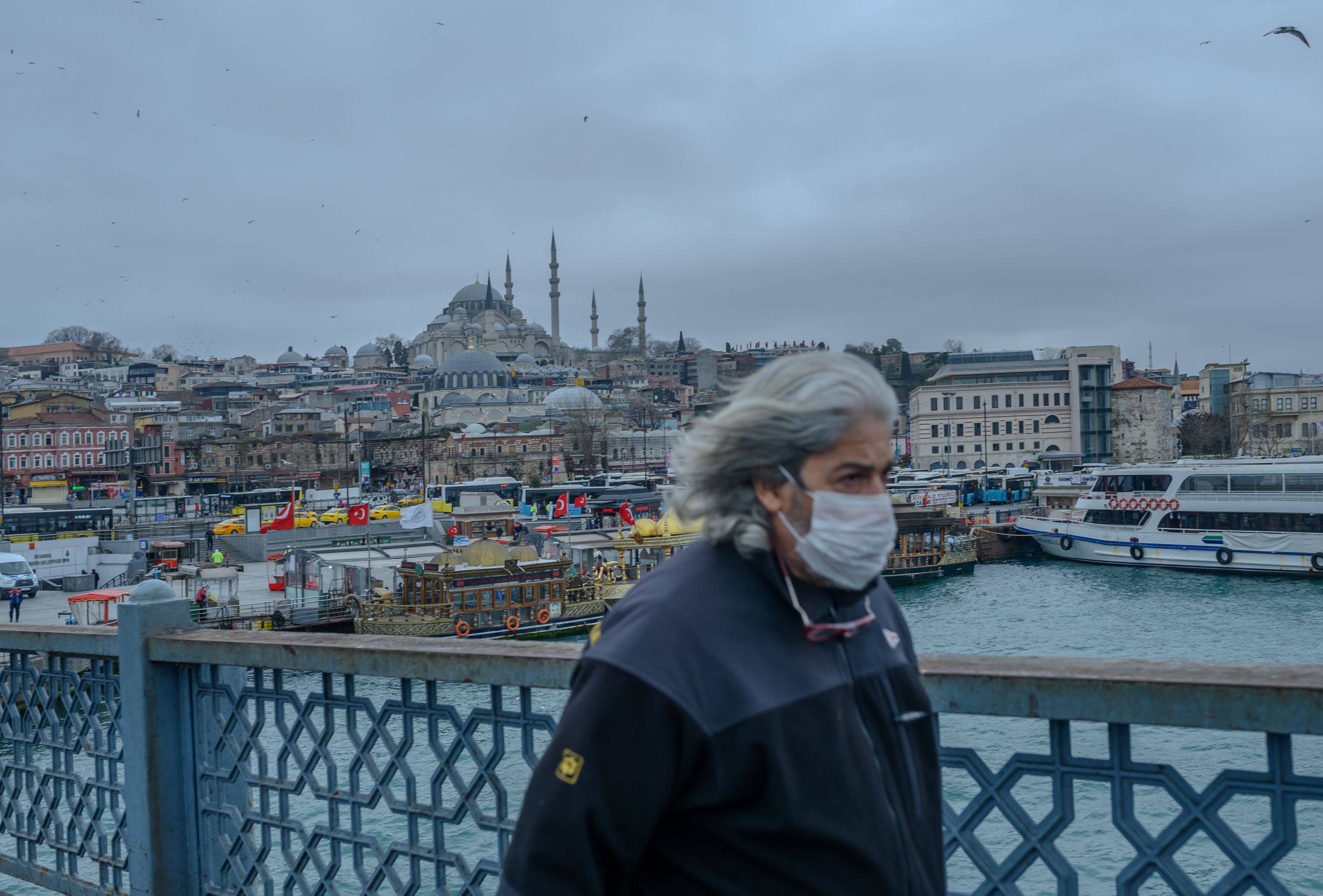
Turkey cancelled all international flights and imposed a travel ban on 30 cities, including Istanbul, Ankara and Izmir, in an effort to contain the spread of the coronavirus.
"We have entered a new period where we need to make more sacrifices," Turkish President Recep Tayyip Erdogan said in a special address to the nation on Friday. "We won't fall into inaction nor panic."
Travel between the 30 cities will be possible only with formal permission from local governors, Erdogan said.
The president also said that the private sector has been ordered to minimise its staff in workplaces and transition into flexible working shifts.
The Turkish government has also closed down parks, forests and shores on weekends and won’t allow gatherings on weekdays in these areas.
"In all provinces, a pandemic board will be established, with governors as their chairs, to monitor precautions and take additional precautions, limited to the relevant province, if necessary," he said. "We can get out of this problem faster if we properly apply these measures."
The additional measures were put in place on Friday as more patients piled up in the last 24 hours.
On Friday, Turkey announced 16 new deaths from the disease, bringing the total to 92. Turkish Health Minister Fahrettin Koca said the total number of confirmed infections had reached 5,698, after 7,533 tests were conducted earlier in the day.
He also said that a special science board advised Erdogan to further increase the measures by putting cities in isolation after the number of patients increased by 50 percent in a single day.
Since the virus reached Turkey, the government has unleashed an array of measures aimed at curbing its spread, including closing down schools, universities, cafes, congressional prayers, indefinitely postponing sporting events and suspending flights to many countries.
Turkish authorities have ordered those aged 65 and over and those with chronic illnesses to stay home, while most public spaces have been temporarily closed.
Middle East Eye delivers independent and unrivalled coverage and analysis of the Middle East, North Africa and beyond. To learn more about republishing this content and the associated fees, please fill out this form. More about MEE can be found here.


